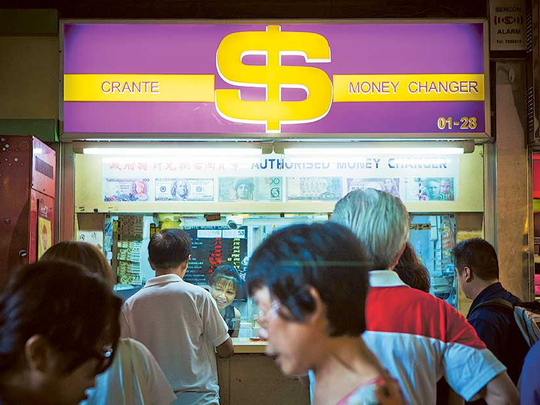
New York: Volatility in the $5.1-trillion-a-day (Dh18.7 trillion) foreign-exchange market is down, but not out, according to UBS AG.
Currency swings will increase later this year as investors weigh the potential outcome of the US presidential election and the likelihood of a Federal Reserve year-end interest-rate increase. The predicted volatility resurgence follows a period of calm that started in July, after traders absorbed the initial shock of the UK’s Brexit vote. A JPMorgan Chase & Co gauge of currency volatility fell to a two-week low this week.
“Once it gets closer to the election, and the call gets closer on who will be the next president, volatility should rise from currently rather low levels,” said Constantin Bolz, a foreign-exchange strategist at UBS’ wealth management unit in Zurich.
It’s been a year of ups and downs for the dollar on mixed signals from policymakers amid prospects for Fed monetary tightening. The central bank scaled back its outlook for interest-rate increases this week, further dimming the outlook for the greenback, which has declined almost 4 per cent this year. And with the US presidential election only about six weeks away, investors are speculating about what the outcome will mean for the currency market.
Expanding stimulus
The Bloomberg Dollar Spot Index, which tracks the currency against 10 major peers, dropped 0.6 per cent this week as traders digested the Fed announcement and the Bank of Japan’s move to a more flexible approach to expanding stimulus. The greenback fell 1.2 per cent to 101.02 yen, and weakened 0.6 per cent to $1.1226 per euro.
The J.P. Morgan Global FX Volatility Index, a gauge of expected swings in the currency market, climbed to 9.9 per cent Friday, while remaining below its 10.7 per cent average this year. It has stabilised in recent months after it reaching a four-month high just before the UK decision in June to leave the European Union.
Democratic nominee Hillary Clinton and Republican Donald Trump will hold their first televised debate September 26 as part of the run-up to the November 8 election.
“We have a strong view that volatility is going to pick up toward year-end,” said Douglas Borthwick, the New York-based head of currencies at Chapdelaine & Co.












